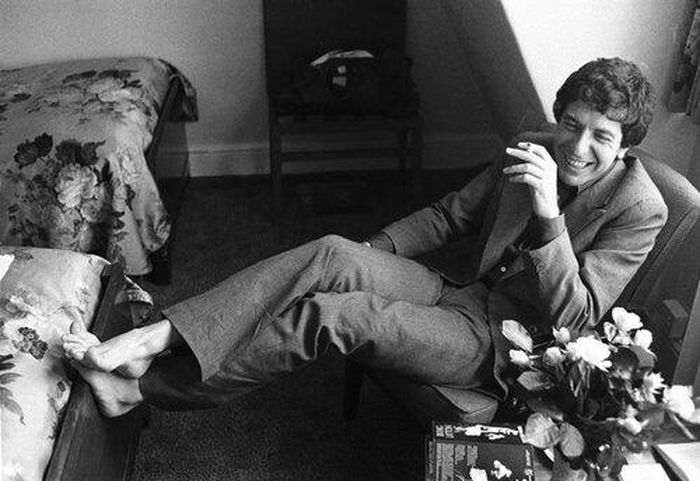Ben Howard’s Collections From The Whiteout
Caterina Bragoli reviews singer-songwriter Ben Howard’s latest album, produced by The National’s Aaron Dessner
The 2013 Brit Awards saw Ben Howard scoop ‘Breakthrough Artist’ and ‘Best Male Solo Artist’, firmly cementing the London-born singer-songwriter’s debut album, Every Kingdom, as one to be remembered. Since his debut, his neo-folk inspired albums I Forget Where We Were and Noonday Dream have done, on the whole, well, with the former topping the UK charts (the other, however, received a mixed critical reception). Collections From The Whiteout marks a significant departure from Howard’s usual sound, wrought with personal memories and episodes of soul-searching, and instead draws upon news headlines and the current state of the world, culminating in a pensive chronicle of troubling times.
“The intertwining of both old and new marks a veering from Howard’s indie folk comfort zone”
Coming straight from working on Taylor Swift’s lockdown music projects folklore and evermore, Aaron Dessner, of The National, has achieved quite the musical feat this past year. It was, perhaps, after hearing Dessner’s experimental guitar piece “Santa Agnes” (written alongside Bryce Dessner) that Howard was inspired to mesh his laid-back, gentle style with Dessner’s penchant for the unconventional. It’s not only Howard and Dessner that worked in tandem: Jason Treuting from the group So Percussion and Thomas Bartlett, otherwise known as Doveman, joined forces with Howard’s bandmate India Bourne (her eerily beautiful vocals and cello can be traced across various projects of Howard’s) as well as Mickey Smith to create Collections. The intertwining of both old and new marks a veering from Howard’s indie folk comfort zone (although echoes still remain), and into the contemporary, or genreless field.
Opening track “Follies Fixture”, with its rippling synth-echo lying at the heart of the song, left a significant impression on me immediately. Howard commented to DIY that ““Follies Fixture” is a love song [...]. It deals with an apathetic period of my life searching for routine in Paris”. Poetic lines such as ‘The sun beat through the glass to grace our meeting’ and ‘Every sight of you I know is worth the keeping’ bring into question the extent of Howard’s apathy, considering the depth of feeling they evoke. Another personal highlight of the album is “Sorry Kid”, perhaps due to the preservation of Howard’s classic sound in this track. Pulling inspiration from news headlines, Howard loosely bases this lullaby-esque ballad on imprisoned Anna Sorokin, a Russian/German woman convicted of fraud in the US. Having said this, Howard notes that ““Sorry Kid” is roughly about something, but it’s roughly about nothing as well,” a sentiment that perfectly encapsulates the tranquil detachment of the song.
While many aspects of Collections are to be applauded, Howard’s breezy remark that the album is “just a collection of songs” rings true at various points, as the project lacks a certain level of cohesion. “Crowhurst’s Meme”, for example, based on the story of Donald Crowhurst, a British businessman who died at sea, is a relatively wobbly track, with a sharp synth guitar sound. It is almost an uneasy listen, although the chorus and it’s refrain of ‘When I wake up, I’m a long way out’ offers a momentary reprieve. It’s a stark contrast to the mellow ballads on the album, like the standout song “Rookery”. “Unfurling” also has a rocky opening: Howard ventures into a harsher vocal range that clashes with an unsteady guitar, and makes for an equally precarious listen.
“Howard crafts a space for us to listen and daydream during a time where such moments are scarce”
It could be that I am reluctant to embrace Howard’s evolution as an artist in these more experimental tracks, considering their major shift from his traditional catalogue, which I have come to take great comfort in as a fan, but there is no denying that some of these tracks are utterly triumphant. “Metaphysical Cantations” features the perfect entwining of folk and electronic, as Howard masterminds a journey to Tanit’s tomb. Lyrics such as ‘Dancing through the arch to mark the other/ Wide eyed, what else?/ The snapping of the neck of some small creature/ Wide eyed, what else?’ feel almost gothic, emphasising the story-like narratives of Howard’s polished lyricism. “Sage That She Was Burning” is another successful and innovative move for Howard: opening in a muffled and harsh way, resembling radio waves, Howard’s soothing, melodic voice marries the two opposing tones of the track together, eventually merging midway through.
On a final note, Howard considers how we “[...] are really searching for meanings of things, but perhaps now is a really nice time to just have a moment where we play music that maybe represents a feeling rather than a bespoke meaning”. This is perfectly summative of Collections From The Whiteout: while there is no carefully-wrought concept or flow to the album, Howard manages to encompass a broad range of emotional responses to his tracks. From his poignant and almost spiritual ballads to his occasionally unnerving moments, Howard crafts a space for us to listen and daydream during a time where such moments are scarce.
 News / Cambridge student numbers fall amid nationwide decline14 April 2025
News / Cambridge student numbers fall amid nationwide decline14 April 2025 Lifestyle / First year, take two: returning after intermission14 April 2025
Lifestyle / First year, take two: returning after intermission14 April 2025 News / First candidate to announce chancellorship bid pledges to tackle bullying 12 April 2025
News / First candidate to announce chancellorship bid pledges to tackle bullying 12 April 2025 News / Uni to ‘review’ tripos rankings and weekend lectures in undergrad teaching overhaul10 April 2025
News / Uni to ‘review’ tripos rankings and weekend lectures in undergrad teaching overhaul10 April 2025 Sport / Cambridge celebrate clean sweep at Boat Race 202514 April 2025
Sport / Cambridge celebrate clean sweep at Boat Race 202514 April 2025






